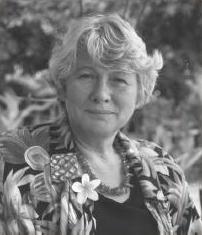Heleen Sancisi-Weerdenburg facts for kids
Heleen W.A.M. Sancisi-Weerdenburg (born May 23, 1944, in Haarlem, Netherlands – died May 28, 2000, in Utrecht, Netherlands) was an important Dutch historian. She focused on the history of ancient Greece and the Achaemenid Empire, which was a powerful Persian empire.
Early Life and Studies
Heleen Sancisi-Weerdenburg started her studies in ancient history at Leiden University. She graduated in 1967. Her research was guided by Professor W. den Boer, who was an expert in Greek history.
For her main university project, she decided to tackle a big challenge. She wanted to understand the real story of the Achaemenid Empire. This was difficult because much of what we know comes from Greek writers. These writers often had their own biases and ways of telling stories that could make the Persian Empire seem different from what it truly was.
To do this, she learned Old Persian language, which was the language of the Persian Empire. She also studied Iranian archaeology with Louis Vanden Berghe in Ghent.
Becoming a Professor
Heleen Sancisi-Weerdenburg earned her doctorate in history and archaeology from Leiden University in 1980. She first taught at the University of Groningen from 1975 to 1989. Then, in 1990, she became a Professor of Ancient History at Utrecht University.
She was a pioneer in studying both ancient Greek and Persian history. Her work emphasized that historians should look at old writings, like those by Herodotus (often called the "father of history") and the playwright Aeschylus, with a fresh perspective. She believed it was important to understand the hidden meanings and goals behind their stories. This helped to better understand the ancient Persian empires, especially the one founded by Cyrus the Great, which lasted for 200 years.
New Ways of Thinking About Persia
For a long time, in Western history, the ancient Persian people were often seen as completely different from the Greeks. They were sometimes called the "Other." People often believed what the Greeks wrote without question, even when other clues from Persian sources suggested a different story.
Heleen Sancisi-Weerdenburg challenged these old ideas. She looked closely at common beliefs about the Persian Empire. For example, she questioned the idea that Persian kings were always weak or that women in the empire only gained power through secret plots in the royal palace.
Her work brought new and exciting discussions to the study of the Persian Empire. She encouraged many other scholars to think differently and debate these important topics.
Later Years
Heleen W.A.M. Sancisi-Weerdenburg passed away from cancer at the age of 56 in Utrecht, Netherlands. Her work continues to influence how historians understand the ancient world.
 | Madam C. J. Walker |
 | Janet Emerson Bashen |
 | Annie Turnbo Malone |
 | Maggie L. Walker |


